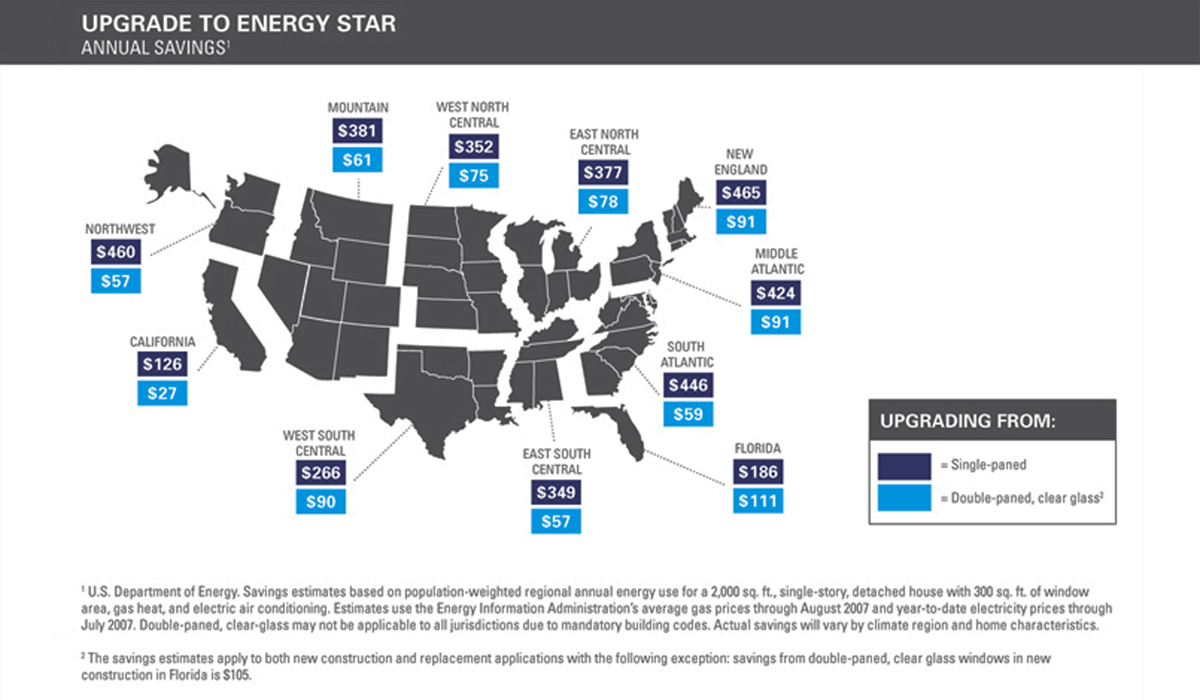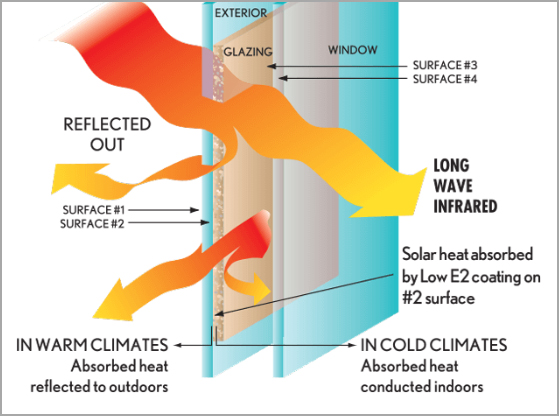28 Jan What Kind of Savings Can You Expect from Energy Efficient Windows?

Energy-efficient windows will save you money.
You will see savings on utility bills, but in other ways too. Two big questions for many people is what kind of savings to expect and are those savings worth the investment? You can answer the second question when you know the results of the first one.
Before deciding on any investment for the home, you should be aware of the facts. A cold, hard look at energy-efficient windows and their benefits will help you make up your mind. Modern windows give you plenty of choice, and quality needs no longer suffer for aesthetics.
Taking a look at energy-efficient windows will help with your decision making.
What are energy efficient windows?
Energy-efficient windows differ from traditional windows in many ways. Traditional windows often had frames made from light wood or aluminum and were more likely to conduct heat and cold. aluminum frames. Today’s clad wood, vinyl or fiberglass frames are much less conducive to temperature transfer through the structure.
 Traditional single glass panes were also more likely to conduct heat and cold. Modern energy efficient windows feature double or triple panes with inert gas between the panes to limit transfer. The panes are also available with coatings that reduce solar heat gain.
Traditional single glass panes were also more likely to conduct heat and cold. Modern energy efficient windows feature double or triple panes with inert gas between the panes to limit transfer. The panes are also available with coatings that reduce solar heat gain.
The combination of quality frames and double or triple coated and gas filled panes makes for very energy-efficient windows.
What kind of savings can you expect?
This is the big question. While paying more for energy efficient windows, can you ever hope to realize a return?
A report by Energy Star outlines the savings estimates very clearly. It is possible to save up to $465 per year when replacing single pane with double or triple panes; not a small sum by anyone’s reckoning. The savings from replacing double panes could be up to $111 per year.
Your replacement energy-efficient windows should have an Energy Star rating, and the higher the rating, the better the window is for your home. Savings may differ too depending on where you live. You should consider the Solar Heat Gain rating for warmer districts, and if you live in a colder climate, then the U-factor rating is the important one.
Ask your window supplier for ratings information whenever you shop for new windows for your home.
Other savings beyond energy
There are other financial benefits too.
The quality in the production and of the materials means they are likely to last a lot longer than standard windows. Cheaper aluminum and vinyl windows expand and contract, creating gaps which allow air and moisture around the windows. Fiberglass and clad wood have less expansion and contraction and help protect the structure of your home. These qualities mean you will not need to replace your energy-efficient windows for many years.
Energy-efficient windows also help protect interiors by blocking the sun’s rays from coming through the glass. This can help prevent damage to carpets, wallpaper, furnishings, paintings, photos and books. The savings here can be considerable over time.
Your new windows will also reduce noise pollution if you live on a busy street. Energy-efficient doors and windows in good shape can also help increase your home resale value.
